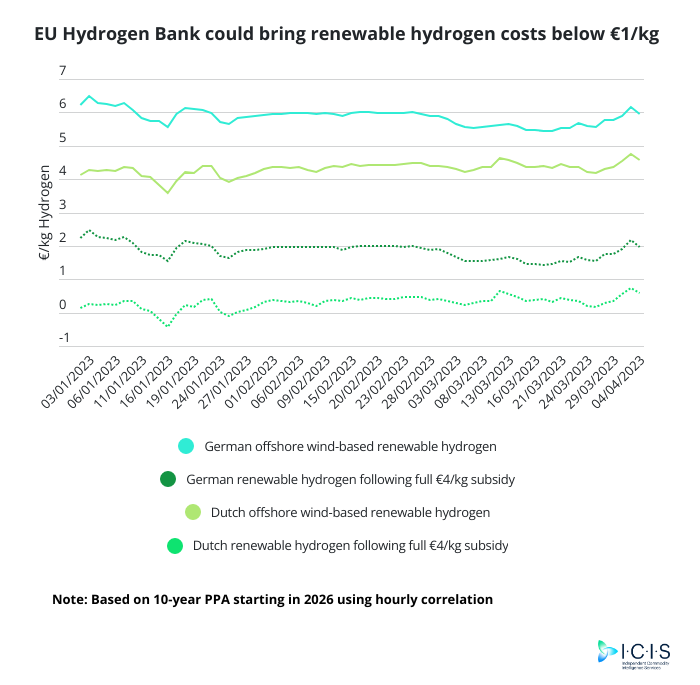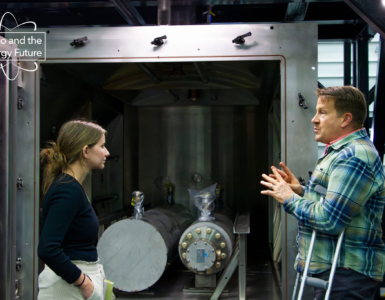ICIS – EU Hydrogen Bank could bring renewable hydrogen costs below €1/kg.
ICIS data shows that renewable hydrogen could be sold for below €1/kg if a producer obtains the maximum support provided by the European Hydrogen Bank, according to the heads of terms for the bank published by the European Commission on 31 March.
The bank, which was announced in September 2022, aims to support hydrogen producers using an auction bidding system, which ranks bidders according to price per kilo of hydrogen.
Utilising the Innovation Fund, the commission will allocate €800m for the first auction for support from the bank, with subsidies capped at €4/kg of hydrogen. The hydrogen has to be aligned with the delegated act for renewable fuels of non-biological origin (RFNBO), also known as renewable hydrogen, and projects must reach full capacity within three-and-a-half years of being awarded funding. Funding is granted once hydrogen production starts.
🔥 What about we co-host a webinar? Let's educate, captivate, and convert the hydrogen economy!
Hydrogen Central is the global go-to online magazine for the hydrogen economy, we can help you host impactful webinars that become a global reference on your topic and are an evergreen source of leads. Click here to request more details
Successful bidders will then be granted a fixed sum according to the volume bid, over the course of ten years. Bidders cannot win more than 33% of the available budget, and must have a project size of at least 5MW.
€1/KG HYDROGEN
ICIS assessment data from 4 April shows that renewable hydrogen produced using a 10-year renewable power purchase agreement (PPA) starting in 2026 in the Netherlands would cost €4.58/kg on a project breakeven basis. For 10-year PPA renewable hydrogen, ICIS accounts for the recovery of the capital investment for the electrolyser over the duration of the PPA, meaning by the end of the subsidised period, costs would be recovered.
Given a hydrogen producer could receive the full subsidy of €4/kg, this would mean just €0.58/kg of hydrogen would be needed to achieve capital cost recovery, meaning the producer would need to charge buyers less than €1/kg to ensure project breakeven.
READ the latest news shaping the hydrogen market at Hydrogen Central
EU Hydrogen Bank could bring renewable hydrogen costs below €1/kg, London, April 5, 2023








